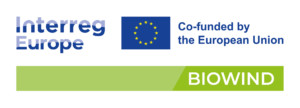BIOWIND
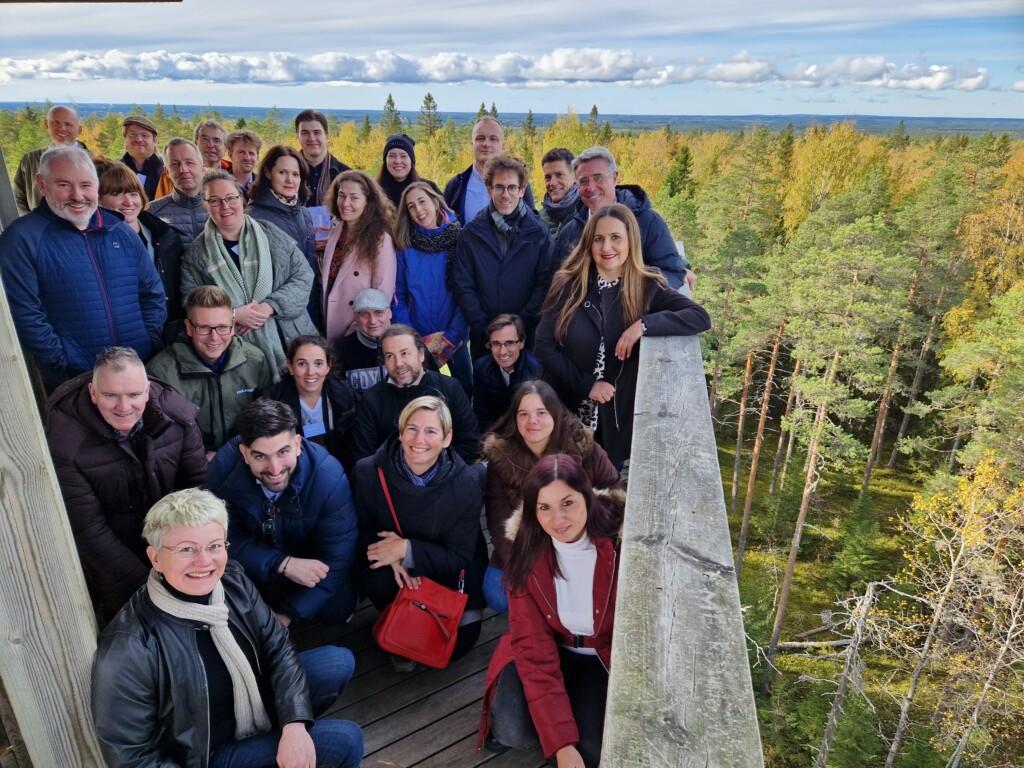
Increasing social acceptance of wind power in EU regions through environmental and community-based planning
- Duration: 1. phase 1.3.2023–1.3.2026 and 2. phase 1.3.2026–1.3.2027
- Project webpage
- Lead Partner: Western Greece region, Greece
- Partners:
- Zemgale Planning Region (Latvia)
- North and West Regional Assembly (Ireland)
- University of Patras (Greece)
- Flemish Brabant Province (Belgium)
- Danube Central Organization Nonprofit Ltd. (Hungary)
- Świętokrzyskie District Marshal’s Office (Poland)
- Autonomous Region of Murcia – Directorate General of Natural Environment (Spain)
- Asturias Energy Foundation (Spain)
- Regional Council of South Ostrobothnia (Finland)
- Discovery partner:
- Active Alliance for Albania (Albania)
- Funding program: Interreg Europe 2021-2027
- Total budget: 1.98 million euros
- Regional Stakeholder Group:
- Centre for Economic Development, Transport and Environment of South Ostrobothnia
- City of Kauhajoki
- Into Seinäjoki
- Leader Kuudestaan
- Leader Suupohja
- Municipality of Isojoki
- Municipality of Kuortane
- Municipality of Vimpeli
- Seinäjoki University of Applied Sciences
- Renewables Finland
- Thermopolis Oy
The Project in Short:
The project will enable partners to address two major obstacles for the introduction of wind energy: the opposition of local communities and complicated permit practices.
The aim of the project is to:
- Better the social acceptability of wind power through exchanging experiences and getting to know the policies of the regions, and to support the expansion of its deployment
- Bring wind power and biodiversity policies closer together, support the discussion with civil society, introduce the community to financing and revenue sharing models and improve local level cooperation with wind power
- Development of policy instruments and strengthening of expertise in making wind power policy.
- Strengthening the interaction and mutual understanding of parties for the introduction of wind power.
Good Practices
Interreg Europe projects produce good practices as part of improving regional development strategies and enhancing policy measures. The sharing and application of these practices across different regions enable the dissemination of innovative and effective solutions beyond borders. These practices show how public participation, economic benefit-sharing, and environmental care can significantly improve the acceptance of wind energy projects across different regions.
More information: 👉 BIOWIND Good Practices – Interreg Europe
🇫🇮 Finland
Participatory Approach in Wind Farm Permitting Process (South Ostrobothnia)
The aim of this practice is to strengthen community acceptance and engagement in wind energy projects. A participatory approach brings transparency, trust, and sustainability to the permitting process.
Key elements:
- Open dialogue – Local residents are involved in planning and decision-making from the very beginning.
- Clear communication – Information is shared in a transparent and understandable way with all stakeholders.
- Environmental consideration – Nature values are respected, and environmental impacts are minimized.
🇪🇸 Spain
Participatory Budgeting – Energy Vouchers (Bullas, Murcia)
The municipality of Bullas combats energy poverty by distributing energy vouchers and promoting awareness of renewable energy through participatory budgeting. This strengthens local energy awareness and community engagement.
Wind Energy Plan of the Valencian Community
This plan integrates environmental, spatial planning, and grid considerations, promotes public participation, improves inter-agency coordination, and supports developers.
Open participation offer to local investment while developing the Aeolic project (Catalonia)
Catalonia’s renewable energy decree enables local stakeholders to acquire up to 20% ownership in wind energy projects, increasing engagement and social acceptance.
Community Collaboration: Enhancing Wind Farm Development through Collaborative Agreements (Allande, Asturias, Spain)
The company EDPR signed collaboration agreements with local communities during wind project development, improving participation and acceptance.
🇬🇷 Greece
The first autonomous collision avoidance system in Greece (Florina, Dytiki Makedonia, Greece)
Greece implemented a radar-based system that warns and, if necessary, stops wind turbines to prevent bird collisions, enhancing biodiversity protection.
Innovative bird monitoring system to prevent collisions with wind turbines
The Greek startup Digisec has developed a system where high-resolution cameras and artificial intelligence identify birds and prevent collisions with sound and turbine stop signals. This saves birds, reduces turbine downtime, and benefits both conservation organizations and wind energy companies.
Status & Challenges for the Supply Chain for Offshore Wind in Greece
The project assesses the current state and development needs of Greece’s offshore wind supply chain, focusing on floating wind technology. Its goal is to identify gaps and promote international collaboration, especially with Norwegian partners. The outcome includes recommendations for improving infrastructure, skills, and regulatory frameworks. The model supports national offshore wind ambitions and provides a foundation for future development.
🇮🇪 Ireland
Sliabh Bawn Wind Farm (County Roscommon, Ireland)
This wind farm has become a popular local recreation area thanks to community-oriented investments, which helped boost public acceptance of the project.
Pollinator Friendly Wind Farm Management
Pollinator decline is a growing concern in Ireland, partly due to the expansion of wind farms on natural areas. The All-Island Pollinator Plan provides guidelines on making wind farms pollinator-friendly by protecting nature, reducing pesticide use, and supporting biodiversity.
Policy in Practice: Enhancing Wind Farm Development Through Community Benefit Funds
The Community Benefit Fund (CBF) is part of Ireland’s Renewable Electricity Support Scheme (RESS), ensuring local communities benefit from wind projects. The CBF promotes transparency, inclusivity, and sustainability, with funds used for long-term projects like energy efficiency and local enterprises.
🇱🇻 Latvia
Electricity Market Law of Latvia
As of 2024, Latvian law requires wind farms over 1 MW to provide financial compensation to local communities, supporting benefit-sharing and social acceptance.
🇭🇺 Unkari
Two Decades of Good Cooperation in the Neighbourhood of Wind Turbines
This Hungarian initiative shows how long-term, transparent cooperation between wind energy developers and local communities can build trust and reduce opposition. Residents were included in decision-making, and benefits were shared locally. The model offers a transferable example of community-based renewable energy development.
Project meetings
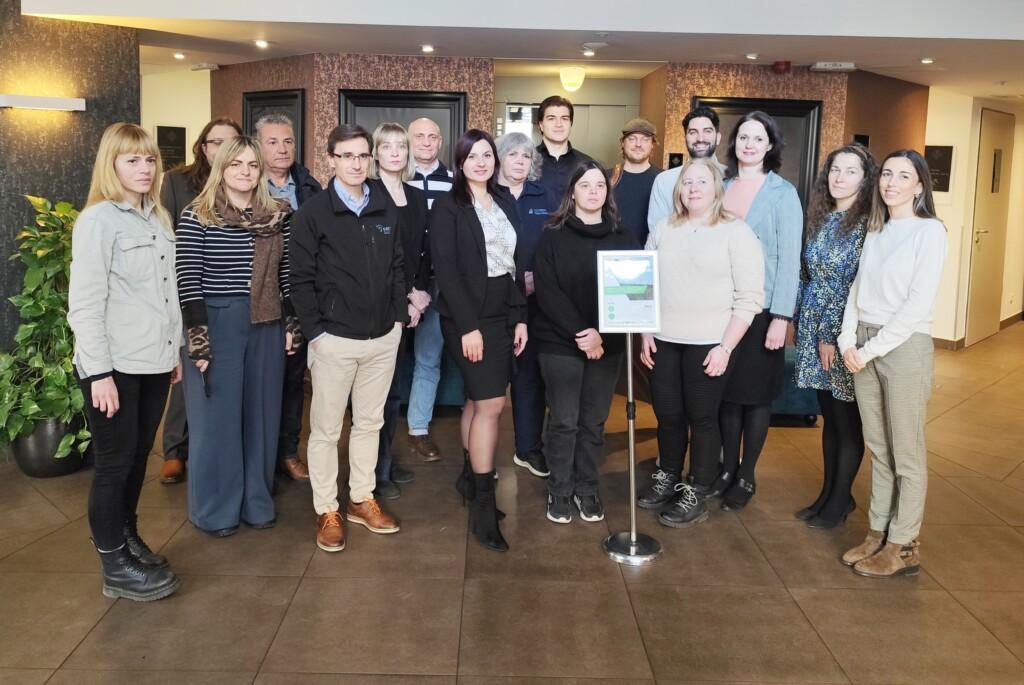
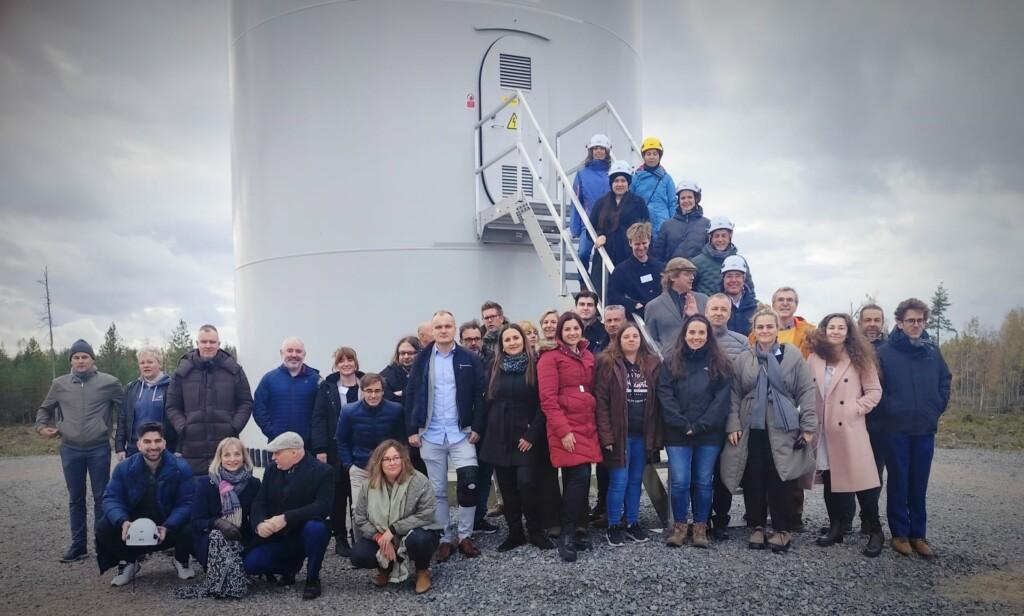
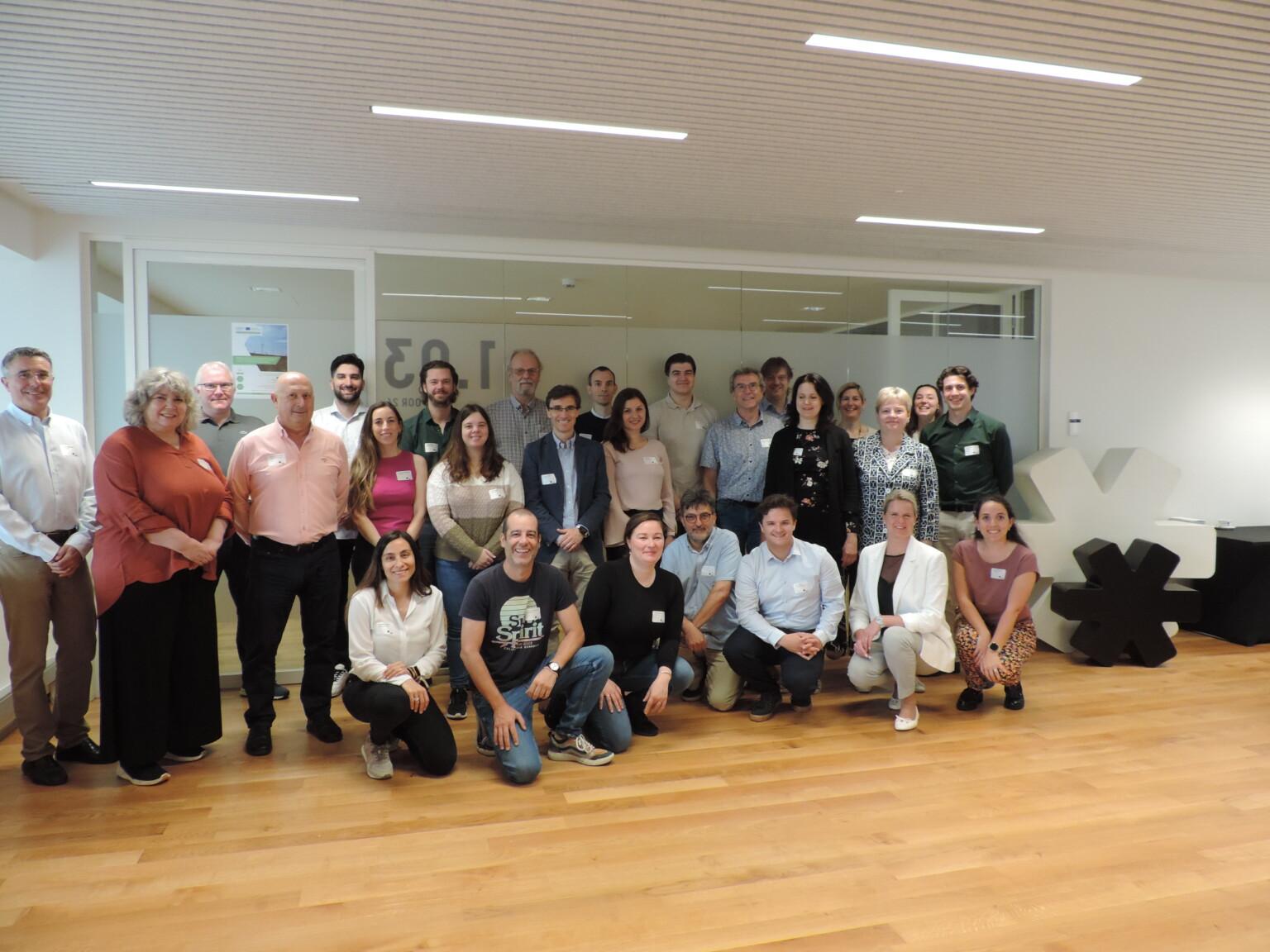
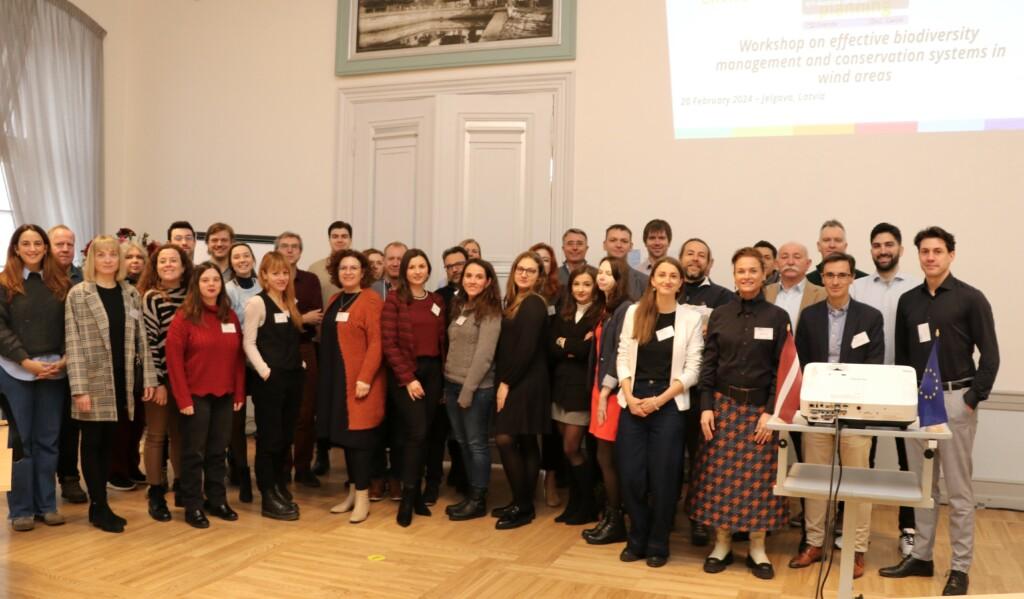
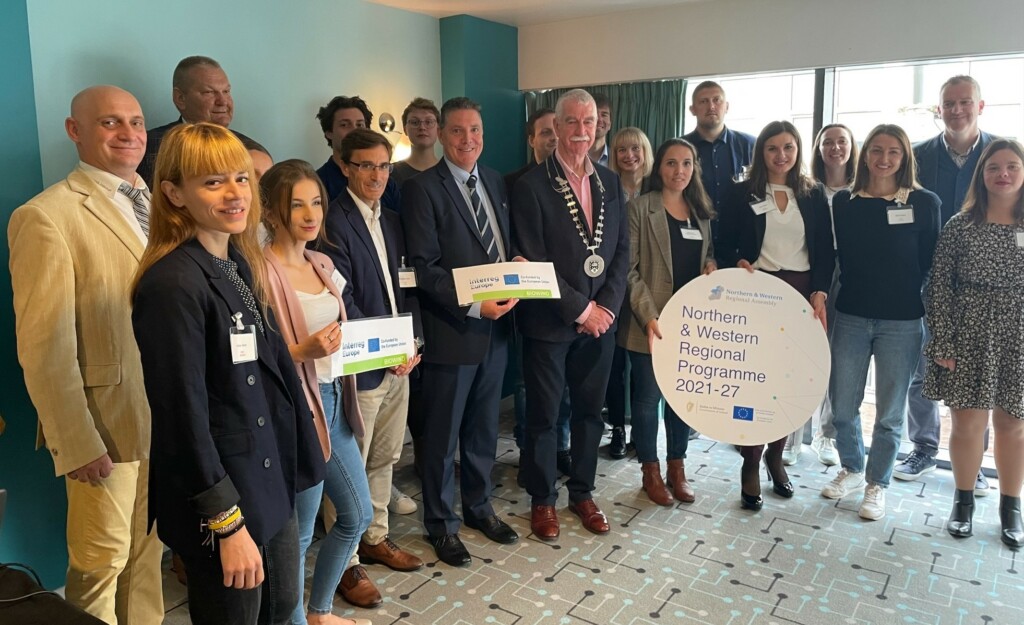
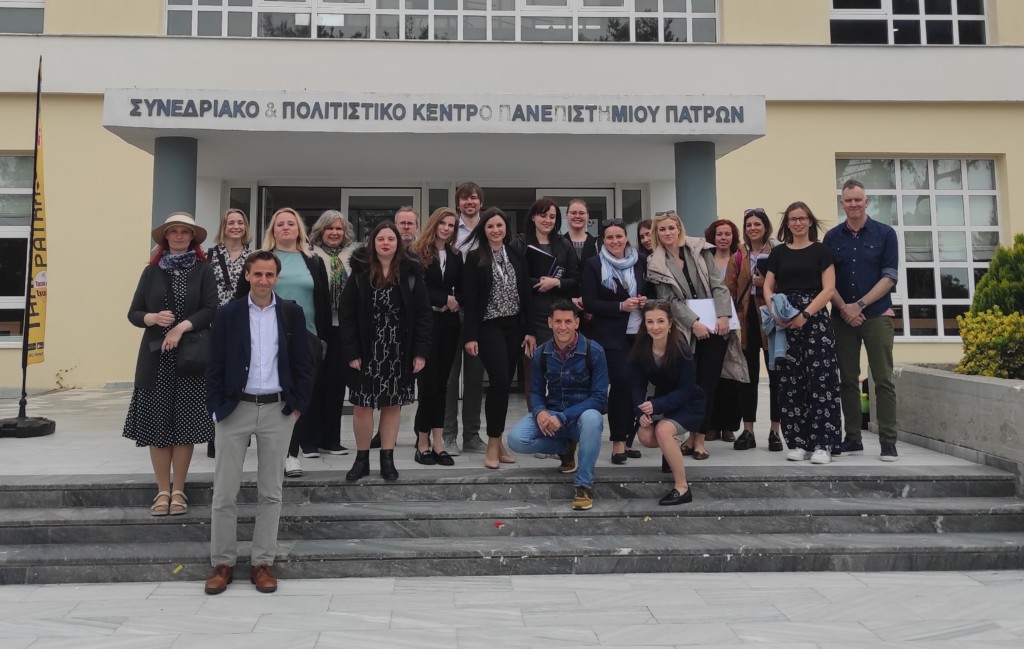
Latest news:
- News about the project meeting in Budapest on 11.02.2025 on the BIOWIND homepage.
- The 3rd newsletter of the project: project news and measures taken.
- 21.11.2023: Article about the latest project meeting in Ireland, published in the “Greetings from South Ostrobothnia” -newsletter
Documents produced by the project
Here you can find summaries of the documents produced by the project. You can request the full document from us by email.
- A1.1: Joint analysis of the environmental and socio-economic factors behind opposition to wind power projects
- We collected and analysed regional information on the aspects that serve as the main concerns and reasons for local resistance to wind energy development.
- The project carried out a survey of citizens, stakeholders and project partners.
- Among stakeholders, the main opposition is linked to fears of a decrease in housing values and a decline in quality of life. In Finland, the main opposition comes from local residents and environmental organisations.
- Consultation at the planning stage and public forums were seen as the most important measures to address stakeholder concerns. Other ways included the creation of cooperatives, land lease payments to landowners, reduced electricity tariffs for local residents, and tax revenues from wind farm operations.
- A1.3: Exchange of good practices to increase social acceptance of wind energy
- A total of 23 good practices from partners have been identified, 4 good practices from Finland.
- All regions were given suggestions of good practices from other countries that could be useful for them.
- Good Practices from Finland:
- Participative approach in wind farm permitting process – Suolakangas wind farm, Finland
- Public engagement in revising regional land use plans for wind farm construction – Finland
- Enhancing community trust and engagement in wind farm projects through evidence-based health impact studies – Finland
- Bird radar protection system for endangered birds at offshore wind farm – Tahkoluoto, Finland
- A1.4: Identifying organisational needs and capacities in public administrations for wind energy in BIOWIND areas.
- Analysis of responses from BIOWIND partners compiled by the South Ostrobothnia Regional Council on the identification of needs and capacities of local actors in public administration with regard to wind energy.
- Responses from 9 partners and 8 different countries.
- The categories of organisational needs and capacities considered in the analysis are:
- Complexity, transparency and duration of administrative procedures.
- Strategic planning, time and complexity.
- Implementation, monitoring and evaluation.
- Public and stakeholder participation.
- Availability of resources.
- Sufficiency of staff and workforce skills.
- A3.1 Irish Workshop Report : Measures to promote public participation and engagement in wind energy planning.
- Good approaches and practices for engagement can support communities, project developers and local authorities to improve project designs, leading to better overall decisions and outcomes.
- They also provide an opportunity for public authorities to identify and develop benefits tailored to the needs of local communities. Open and inclusive community engagement can also increase public awareness of the national importance of wind power and minimise disruption to wind project construction.
- For communities, engagement provides an opportunity to better understand the proposed project, explore the value it will bring to the area, determine which options would best fit the local context, and help shape solutions that work for all parties.
- By raising awareness and actively involving local communities in wind energy projects, public authorities can contribute to changing the nature of community engagement from non-participation to more proactive participation.
- A3.2 Latvian report on the Jelgava workshop and study visit.
- The purpose of the meeting was to:
- Discuss about common challenges and identify gaps in environmental policies that may hinder the deployment of wind farms in the regions.
- To jointly develop effective biodiversity management and protection schemes for wind farm areas.
- Emphasis on biodiversity and nature conservation in areas where endangered species nest.
- The purpose of the meeting was to:
- A3.3 Belgian workshop report: sustainable approaches to wind farm dismantling.
- From an economic point of view, the most viable option is to replace dismantled wind turbines with new turbines that are more energy efficient and have a longer lifespan. The infrastructure is also already in place, which reduces costs.
- The dismantling of wind turbines must be followed by the restoration of the landscape and landscape to its original state. To this end, landscape restoration plans should be drawn up well in advance, even at the planning stage of the wind farm.
- Various ways of using dismantled wind turbines: resale and reuse, innovative processes (e.g. use of parts in art), separation and recycling of materials.
- A3.4 Finnish study visit report: a briefing on the study visit conducted as part of the project in Kauhajoki.
- Topics related to the progress of wind power processes and an overview of the legislation.
- Presentation of the Vöyrinkangas Wind Farm and related technical information. During our project meeting, we visited the Vöyrinkangas Wind Farm to learn about the turbines.
- An introduction to the Environmental Impact Assessment (EIA) in Finland and the stakeholders involved.
- Presentation of the South Ostrobothnia Regional Land Use Plan and an illustration of its contents.
- We collected feedback for our report from other project partners regarding what they learned during the study visit in Finland. We compiled summaries of their comments, which we added to the end of the report.
- A4.4 Spanish report (Región de Murcia): Guidelines for the joint peer-review of territorial policy changes.
- The report includes guidance on how to prepare and implement a peer review of policy changes, which requires the establishment and operation of a joint working group.
- The peer review process will draw on the expertise of each partner, as well as the insights gained from joint thematic analyses (A1), interregional workshops (A3) and stakeholder meetings (A2).
- The process will continue and conclude in the sixth semester, when the working group will meet virtually at least twice to finalise a joint assessment of the policy changes achieved, while considering recommendations for improvements and updates.
- The policy recommendations are an extended and comprehensive list of measures, practices and solutions that contribute to the achievement of BIOWIND policy objectives in partner regions.
